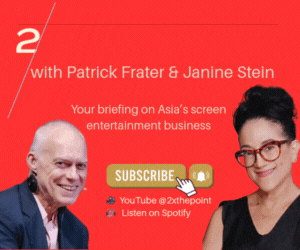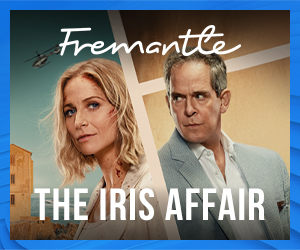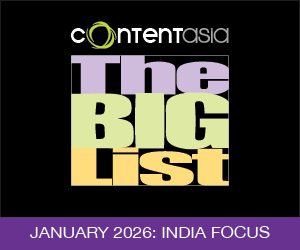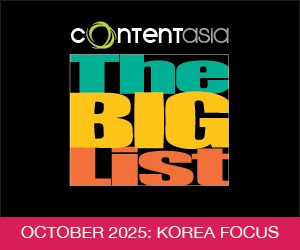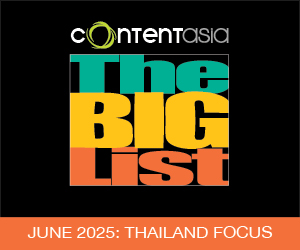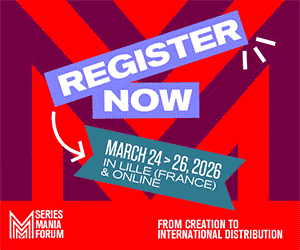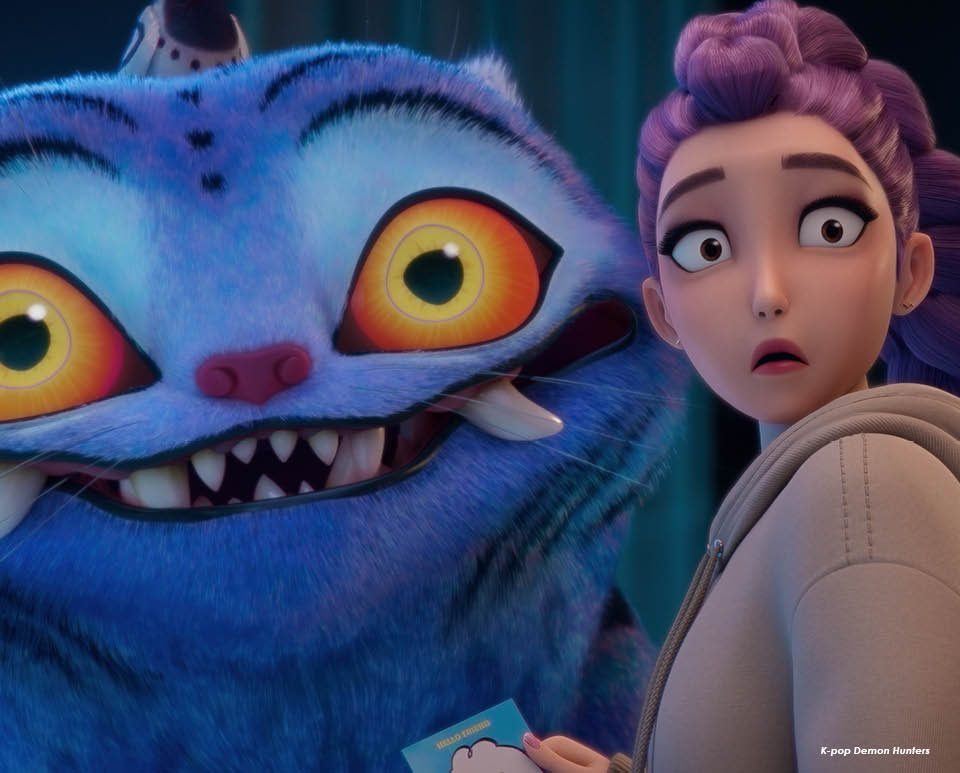
Maggie Kang, the creator and director of Netflix’s most popular movie ever, talks about Korean culture, mythology, demons, music and the opportunity to create a new kind of female superhero.
By our count (based on Netflix’s weekly rankings), K-pop Demon Hunters was watched for more than half a billion hours around the world in its first 14 weeks on the global English-language film top 10. The animated feature toggled between #1 and #2, averaging just under 40 million hours a week from its premiere on 20 June and beating blockbuster titles and A-listers like Liam Neeson, Fan Bingbing, Charlie Sheen, sonic hedgehogs and Shrek. By 27 August, the original animated feature had become Netflix’s most popular movie ever, beating its previous record as the streaming platform’s most popular animated film.
Speaking at Netflix’s Creative Asia event during the Busan International Film Festival (BIFF) in September, K-pop Demon Hunters’ creator and co-director, Maggie Kang, said her proudest moments – and the culmination of a long-held career wish – were the film’s all-Korean cast, its deep immersion in Korean culture, and the opportunity to create a different kind of female superhero.
“I really wanted to work on a Korean project, but I really never came across one,” she said of her dozen or so years in Hollywood’s animation industry. “So when it came time for me to direct a movie and pitch one, I started to think about what I wanted to see in animation, which was Korean culture, and so I looked at our mythology. I was doing a lot of research, and for some reason, I landed on demonology”.
Picking through the creatures and images that she grew up with, Kang said the idea of demons “naturally led to demon hunters, a group of really incredible women who find demons”.
The decision to have them do something in addition to fighting led her to K-pop. “And it really changed everything,” she says. “The movie instantly became larger in scale. It became a musical, and there was just more spectacle.”
“Something that’s really wonderful about K-pop in the world to...
Maggie Kang, the creator and director of Netflix’s most popular movie ever, talks about Korean culture, mythology, demons, music and the opportunity to create a new kind of female superhero.
By our count (based on Netflix’s weekly rankings), K-pop Demon Hunters was watched for more than half a billion hours around the world in its first 14 weeks on the global English-language film top 10. The animated feature toggled between #1 and #2, averaging just under 40 million hours a week from its premiere on 20 June and beating blockbuster titles and A-listers like Liam Neeson, Fan Bingbing, Charlie Sheen, sonic hedgehogs and Shrek. By 27 August, the original animated feature had become Netflix’s most popular movie ever, beating its previous record as the streaming platform’s most popular animated film.
Speaking at Netflix’s Creative Asia event during the Busan International Film Festival (BIFF) in September, K-pop Demon Hunters’ creator and co-director, Maggie Kang, said her proudest moments – and the culmination of a long-held career wish – were the film’s all-Korean cast, its deep immersion in Korean culture, and the opportunity to create a different kind of female superhero.
“I really wanted to work on a Korean project, but I really never came across one,” she said of her dozen or so years in Hollywood’s animation industry. “So when it came time for me to direct a movie and pitch one, I started to think about what I wanted to see in animation, which was Korean culture, and so I looked at our mythology. I was doing a lot of research, and for some reason, I landed on demonology”.
Picking through the creatures and images that she grew up with, Kang said the idea of demons “naturally led to demon hunters, a group of really incredible women who find demons”.
The decision to have them do something in addition to fighting led her to K-pop. “And it really changed everything,” she says. “The movie instantly became larger in scale. It became a musical, and there was just more spectacle.”
“Something that’s really wonderful about K-pop in the world today... it’s the way that it just brings people together, even though people don’t understand the lyrics to a song. You go to a K-pop concert and everybody’s singing along, and there’s just this really great energy... it’s able to cross cultural barriers.”
A “huge” K-pop fan, Kang says she “wanted to create that feeling in the film... and K-pop became this huge selling point for the movie”. What she didn’t necessarily publicise at the time was her goal to “take this concept and make the movie as Korean as possible, to inject as many Korean elements into it as possible”. Ultimately, these included Korea’s national animal – the tiger, which became Derpy – to taekwondo, locations, landmarks and food.
Music used to ward off demons is already a part of Korean lore, and Kang explains that Shamanic rituals were in a way “the first concerts of Korea”. These rituals used sound as a barrier “to fight back demon hordes constantly trying to come and seek us out and eat our human souls”.
“It felt like kind of a no-brainer to link our fantasy concept to something that actually exists in our culture,” Kang says. As she dug deeper into the story, she was “really inspired by the folk dancers who perform these rituals... to protect communities from demons and ward off bad spirits”. And so K-pop Demon Hunters’ Rumi, Mira and Zoey became “superheroes with a power to connect people and to create this shield around the world.”
Kang says the tradition passed down through the generations may be “a really small part of our movie... but for me, being someone who’s Korean, and I’ve heard this from many Korean audiences, it’s very meaningful because we haven’t really seen that representation of our culture from the olden days to modern times. This part of the movie is probably one of the proudest moments for me as a creator,” she says.
Kang says her lead trio are both pop stars and “badass” demon hunters. “We really wanted to represent all sides of our characters... to really explore the personalities and individuality when they are not on stage, and show a more personal and relatable side”.
“They’re modern, they work in their own style, with confidence and flair, eating ramyeon and putting on makeup as they fight demons... [another] of my proudest things is that we created Korean women, Korean female lead characters, and we worked really, really hard to make them both appealing and aspirational and unique, but most importantly, Korean. And for the very first time in feature animation, we see a movie with all Korean characters. For me and our industry, this was a really, really, really big deal.”
Kang also saw an opportunity to create a new type of female superhero. “I really wanted to see ones who were messy and silly and funny, who eat a lot and who are just really real and hate mornings, like all of us, and who also have struggles and flaws, even ones with really, really dark pasts and roots, but through friendship and understanding and defeating their inner demons and actual demons... and inspiring others in the process.”
“The idea that your secrets and shame can hold you back from people that you love is such a universal theme. And there are many, many other themes in our film that are very universal.”













